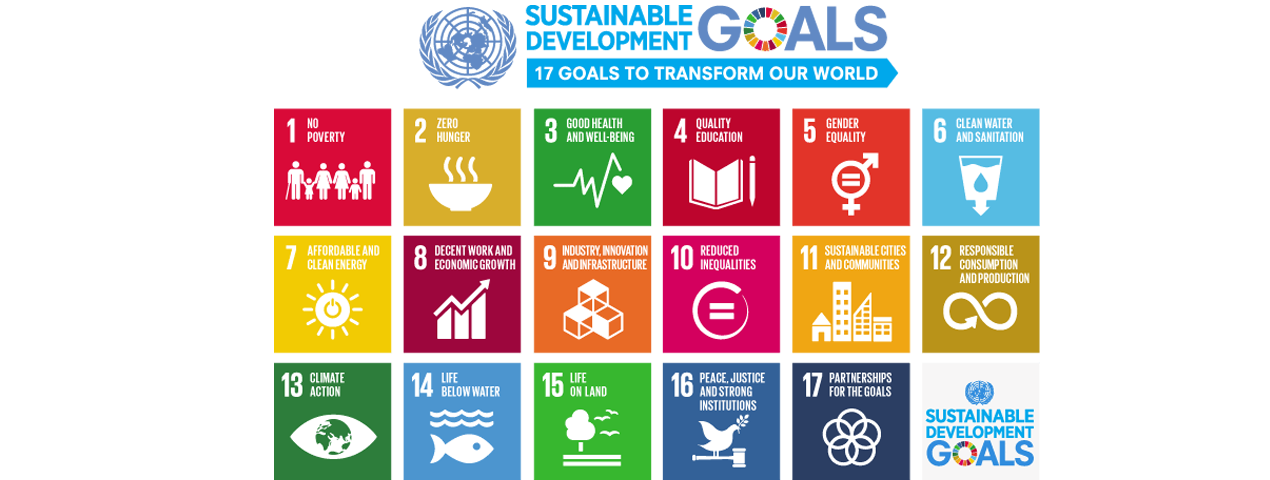Sustainable Development Goals

The Sustainable Development Goals (SDGs) or Global Goals are a collection of 17 interlinked objectives designed to serve as a "shared blueprint for peace and prosperity for people and the planet now and into the future". The SDGs are: no poverty; zero hunger; good health and well-being; quality education; gender equality; clean water and sanitation; affordable and clean energy; decent work and economic growth; industry, innovation and infrastructure; reduced inequalities; sustainable cities and communities; responsible consumption and production; climate action; life below water; life on land; peace, justice, and strong institutions; and partnerships for the goals. The SDGs emphasize the interconnected environmental, social and economic aspects of sustainable development by putting sustainability at their center.
The SDGs were formulated in 2015 by the United Nations General Assembly (UNGA) as part of the Post-2015 Development Agenda, which sought to create a future global development framework to succeed the Millennium Development Goals, which ended that year. They were formally articulated and adopted in a UNGA resolution called the 2030 Agenda, known colloquially as Agenda 2030. On 6 July 2017, the SDGs were made more "actionable" by a UNGA resolution that identifies specific targets for each goal and provides indicators to measure progress. Most targets are to be achieved by 2030, although some have no end date.
There are cross-cutting issues and synergies between the different goals; for example, for SDG 13 on climate action, the IPCC sees robust synergies with SDGs 3 (health), 7 (clean energy), 11 (cities and communities), 12 (responsible consumption and production) and 14 (oceans) Conversely, critics and observers have also identified trade-offs between the goals,such as between ending hunger and promoting environmental sustainability. Other concerns include there being too many goals (resulting in compounding trade-offs), a weak emphasis on environmental sustainability, and difficulties tracking qualitative indicators.
The SDGs are monitored by the UN High-Level Political Forum on Sustainable Development, an annual forum held under the auspices of the United Nations Economic and Social Council. However, it has so far failed to act as an orchestrator to promote system-wide coherence due to a lack of political leadership owing to divergent national interests. To facilitate monitoring of progress on SDG implementation, the online The COVID-19 pandemic had serious negative impacts on all 17 SDGs in 2020; a scientific assessment released in 2022 determined that the world is not on track to achieve the SDGs by 2030 and concluded the SDGs have so far had only limited political effects in global, national and local governance.
